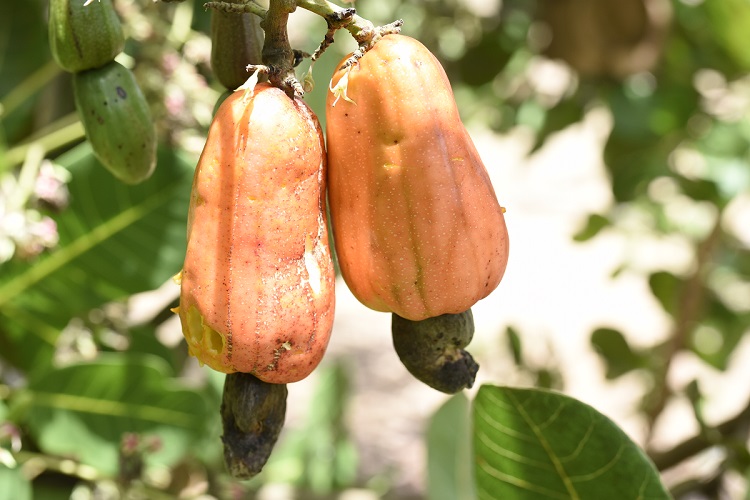Many people know cashew nuts as a favourite snack or ingredient, though unless you’ve seen them growing, you might be surprised to know that the ‘nut’ is actually a seed, which grows from the bottom of a curious ‘cashew-apple’.
Originally from Brazil, the plant was taken to Goa in India by the Portuguese, from where it spread throughout south-east Asia and Africa. Today, almost 4 million metric tonnes of cashews are produced globally. Most of Africa’s cashew is grown in west Africa, where it is one of the most important emerging cash crops in the region.
Along with the major producers, Côte d’Ivoire, Guinea-Bissau, Nigeria, Benin, Burkina Faso, Ghana, Senegal and Gambia, Sierra Leone has a burgeoning cashew value chain. Under the VCA4D project, a team of four experts conducted a rigorous cashew value chain analysis in the country.
NRI Associate Professor Ravinder Kumar contributed as the team’s social expert, exploring whether the value chain is socially sustainable and whether growth in the value chain can be socially inclusive. The study results show that with a 2.5-hectare cashew farm (median cashew land in the country), a farmer in Sierra Leone can, under most conditions, earn annual profits (after deducting cost of production) almost equivalent to the living wage (USD 800) in the country.
a 2.5-hectare cashew farm (median cashew land in the country), a farmer in Sierra Leone can, under most conditions, earn annual profits (after deducting cost of production) almost equivalent to the living wage (USD 800) in the country.
Cashew can, therefore, be a poverty alleviation tool. This is achievable if high-quality planting material is provided to the farmers along with the necessary management inputs and accessible finance.
The study identified two clear risks relating to working conditions in the value chain: a) The wages of farm-level workers, working on farms and mid-size/large cashew plantations are very low – much less than minimum wages, and b) the ‘informal’ nature of wage employment in the cashew value chain makes it difficult to implement or monitor compliance with labour standards.
On food and nutrition security, the findings suggest that cashew value chain development has the potential to increase the stability of incomes and food security for cashew producers and processors. The study further illustrated existing ‘social capital’ in the value chain.
The cashew value chain has seen many novel experiments such as the ‘block farming model’ from the company Balmed and a ‘semi-block farming’ concept promoted by Italian NGO, COOPI. In such models, the harvest is shared among the company, landowners and youth groups/workers, using a formula based on the international produce price.
The landowners allow youth workers to access a designated plot, the company supplies farm and management inputs, and all three groups share in benefits arising from the sale of cashew. The study suggested that the development and strengthening of these initiatives are important to achieve the country’s export potential of approximately 10,000 tonnes of cashew.
Women are economically very active and play significant roles throughout the cashew value chain. Whilst men mostly control incomes from cashew farming, women have direct control of incomes earned from processing and trading engagements. More participation for cashew producers and processors in existing Farmer-Based Organisations and Agri-business Companies can be encouraged as these organisations can provide various services to their members.
Cashew Processing Units, established by COOPI, are starting to play a role in input and output markets. The social analysis shows that the cashew value chain currently carries low social risks and offers promising opportunities for pro-poor and inclusive economic development in the country.
The study findings were shared and deliberated on in a workshop in April 2019 in the country, where over 40 decision makers, programme and policy actors participated. The study is contributing to the development of a cashew promotion policy framework in the country.
To find out more about:

